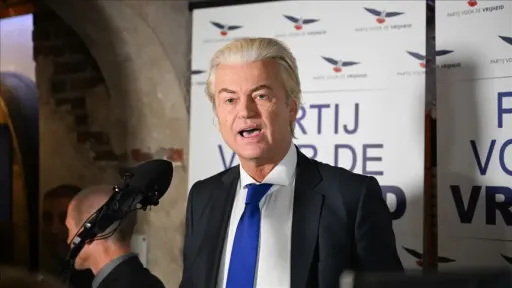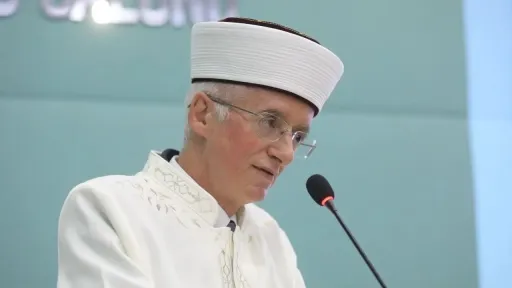Far-right, centrists locked in tight race as Dutch election result hangs in balance

The Netherlands faces one of the tightest election outcomes in its history, with Geert Wilders’ far-right Party for Freedom (PVV) and the centrist Democrats 66 (D66) virtually tied after Wednesday’s parliamentary elections.
According to the latest forecast by Dutch news agency ANP, both PVV and D66 are projected to win 26 seats in the 150-member House of Representatives, with only 1,886 votes separating them in favor of PVV.
The final result hinges on the counting of votes from overseas Dutch citizens and the Caribbean territories of Bonaire, Sint Eustatius, and Saba.
PVV leader Wilders has called on the speaker of the House to delay appointing an “explorer," the first step in coalition talks, until every vote has been counted.
“The differences are so small, and it formally matters who gets to start the exploratory phase,” Wilders said.
“It can’t be that a party’s scout is appointed when we’re not even sure who is the largest.”
D66 leader Rob Jetten emphasized the importance of quickly forming a “stable Cabinet,” saying that “the initiative for the formation should lie with the largest party.”
He urged parties to “get to work” and avoid “looking only at their own supporters.”
The elections marked a strong recovery for D66 and the Christian Democrats (CDA), while PVV and the GreenLeft-Labour alliance (GL-PvdA) both suffered losses. GL-PvdA leader Frans Timmermans resigned following the disappointing result, NOS reported.
Voter turnout reached 78.4%, slightly higher than in 2023, with early results showing record-low margins between the two leading parties, the narrowest since 1956.
As counting continues in Amsterdam, Almere, and among Dutch expats abroad, the final declaration of which party will take the lead in forming the next government may not come until early next week.
AA







